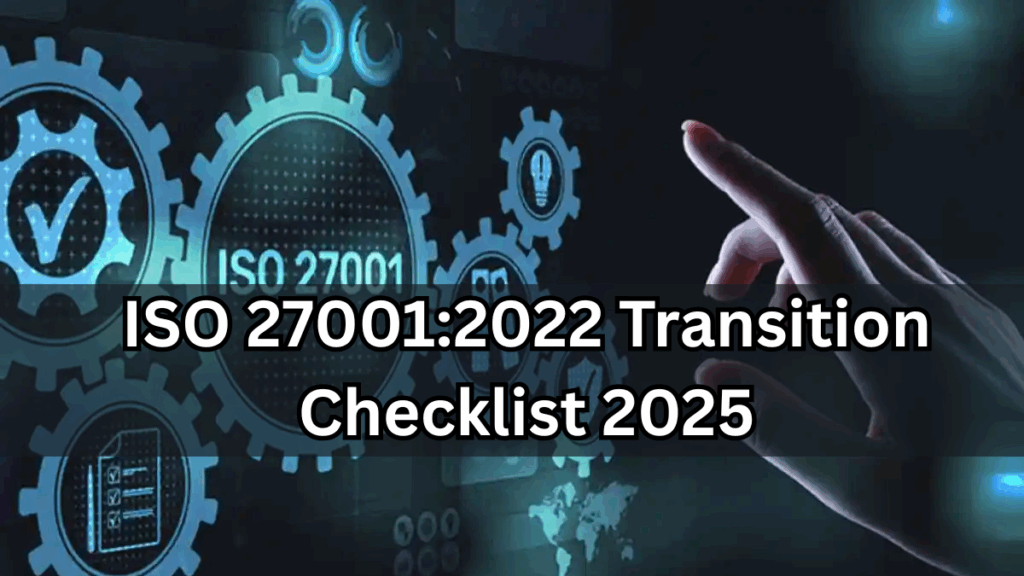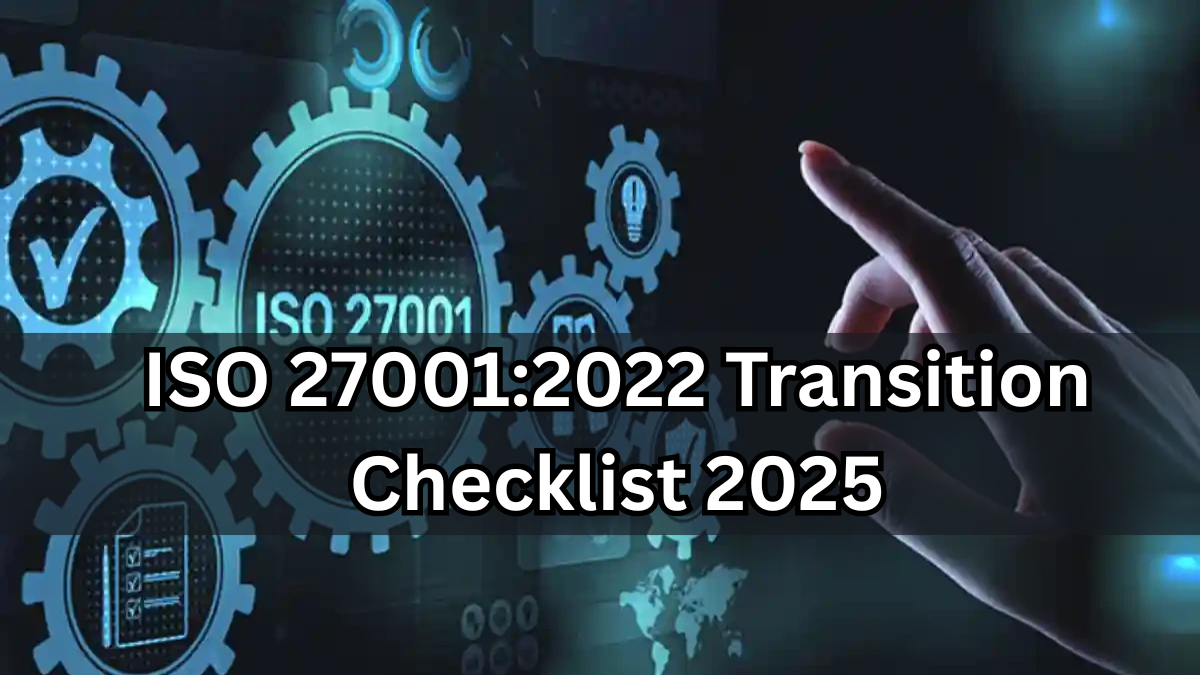Staying compliant with global standards has become a necessity for Indian companies in today’s fast-changing digital world. With cyber risks increasing, transitioning to the updated ISO 27001:2022 standard is more than just a compliance move – it’s a step toward building stronger trust, better governance, and a resilient future.
If you’re an organization preparing for the ISO 27001 Transition 2025, this guide will walk you through the Compliance Checklist and highlight what Indian businesses need to do to ensure a smooth shift.

Why the ISO 27001 Transition 2025 Matters for Indian Companies
-
Cyber threats are growing at an unprecedented rate in India
-
Updated ISO 27001:2022 standards provide stronger safeguards
-
Clients, regulators, and stakeholders demand proof of security readiness
-
Companies that transition successfully gain a competitive edge
Key Changes in ISO 27001:2022
The ISO 27001 Transition 2025 introduces new controls and adjustments. Understanding these updates helps Indian companies align policies with international expectations.
| Change Area | What’s New in ISO 27001:2022 | Impact on Indian Companies |
|---|---|---|
| Annex A Controls | Reduced from 114 to 93 controls | Simplifies compliance efforts |
| New Themes Introduced | Organizational, People, Physical, Technological | Broader security coverage |
| New Controls | Cloud security, threat intelligence, ICT readiness | Addresses modern business risks |
| Governance & Reporting | More focus on leadership and accountability | Strengthens board-level oversight |
| Continuous Improvement | Stronger emphasis on monitoring and evaluation | Ensures long-term compliance |
ISO 27001:2022 Transition Checklist for 2025
Here’s a practical Compliance Checklist for Indian companies preparing for the transition:
Gap Assessment
-
Review your current ISMS (Information Security Management System)
-
Identify gaps between ISO 27001:2013 and ISO 27001:2022
Leadership Commitment
-
Ensure top management is aligned with the new compliance requirements
-
Allocate budget and resources for implementation
Policy & Documentation Updates
-
Revise existing policies to reflect new controls
-
Document cloud security, threat intelligence, and ICT resilience measures
Training & Awareness
-
Train employees on the updated compliance requirements
-
Conduct awareness programs for teams handling sensitive data
Risk Management
-
Reassess risk registers with new threat landscapes
-
Apply updated risk treatment methodologies
Implementation of New Controls
-
Integrate cloud security and threat intelligence practices
-
Strengthen monitoring and reporting systems
Internal Audit & Certification Prep
-
Conduct internal audits against ISO 27001:2022
-
Engage a certified body for external audits
Benefits of ISO 27001 Transition 2025 for Indian Businesses
-
Builds customer trust by ensuring top-tier security
-
Enhances regulatory compliance in India’s tightening data laws
-
Reduces financial and reputational risks of cyberattacks
-
Positions companies as global-ready enterprises
FAQs on ISO 27001 Transition 2025
Q1: Why is the ISO 27001:2022 transition important for Indian companies?
It ensures compliance with updated international security standards, builds client trust, and prepares organizations for evolving cyber threats.
Q2: What happens if a company does not transition by 2025?
Non-transitioning companies risk non-compliance, certification loss, and reduced market credibility.
Q3: How long does it take to complete the ISO 27001 Transition 2025?
Depending on the company’s size and preparedness, it can take 6–12 months for full compliance.
Q4: Who needs to be involved in the transition process?
Leadership, IT teams, compliance officers, HR, and all employees handling sensitive data must participate.
Click here to learn more
